On the morning of September 23, in Da Nang, the Ministry of Information and Communications held a press conference to announce the main results of the 16th ASEAN Ministers on Information Meeting (AMRI 16) and the 7th ASEAN+3 Ministers on Information Meeting (AMRI+3).
The 16th AMRI Conference was hosted by Vietnam in Da Nang city, Vietnam from September 22 to 23; with the theme "Communication: From Information to Knowledge for a Resilient and Adaptive ASEAN ".
Many contents of the conference were passed.
At the press conference, Mr. Nguyen Thanh Lam, Deputy Minister of Information and Communications, said that the 16th ASEAN Information Ministers Meeting had achieved many results, in which the Ministers affirmed and positioned the role of the Information sector in the new period from "information" to "knowledge" - information will become an active means for lifelong learning and raising awareness and digital level for ASEAN citizens. This is an inevitable trend of digital transformation , the influence of social networks, new media, and the development of artificial intelligence.
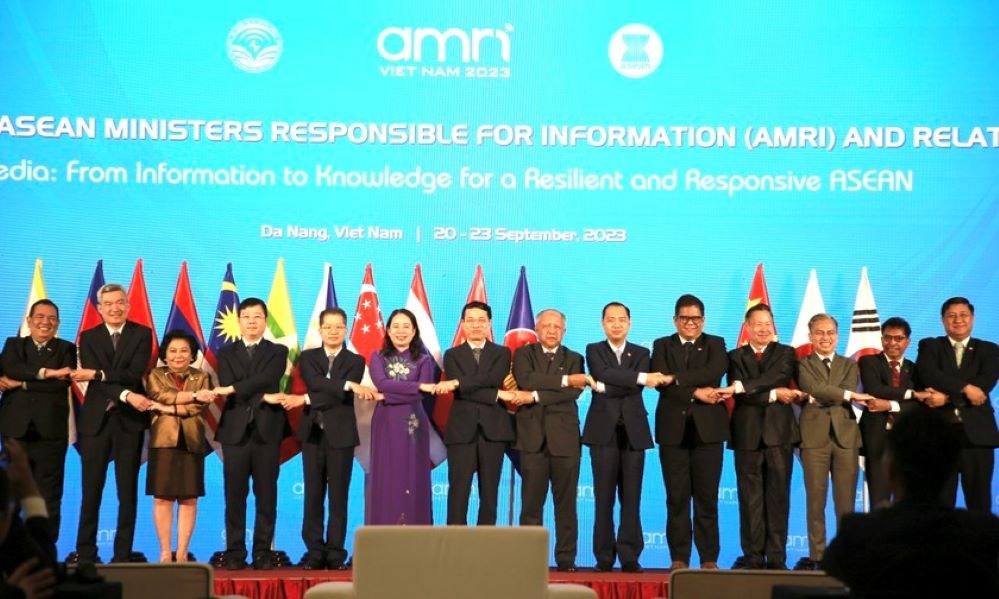 |
The 16th ASEAN Information Ministers Meeting took place in Da Nang on September 22. Photo: baophapluat.vn |
The Ministers encouraged greater dialogue and engagement between the media, communities and people to promote greater information inclusiveness, and called for regional cooperation to build a healthy cyberspace environment, through enhancing digital capacity, promoting the maximization of reliable information sources to build trust, guide public opinion, and enhance digital skills for ASEAN citizens, especially the younger generation and the elderly.
According to Deputy Minister Nguyen Thanh Lam, ASEAN Ministers in charge of information adopted new documents and acknowledged the results and progress achieved in cooperation frameworks in the information field, including:
Adopt the AMRI Vision Statement "ASEAN 2035: Towards a Transformative, Responsive, and Resilient Information and Communications Industry" to promote the achievement of the ASEAN Community Vision 2025 and support the implementation of the respective Blueprints across the 3 ASEAN Pillars.
The Ministers emphasized addressing challenges and leveraging opportunities arising from convergence and rapid digital transformation beyond 2025, affirming the transformative role of media in empowering individuals, communities and societies and shifting from passive information consumption towards active knowledge acquisition, and encouraged ASEAN Member States to consider developing a Master Plan on Digital Transformation for Journalism and Media.
Adopt the Da Nang Declaration on “Media: From Information to Knowledge for a Resilient and Responsive ASEAN”, which recognizes the pivotal role of media in contributing to the goal of an informed citizenry, promoting knowledge acquisition as a driving force to promote a resilient and responsive ASEAN Community, and promoting ASEAN identity to foster social cohesion and deepen the sense of being part of the region to respond to the changing media landscape due to digital transformation.
Adoption of the ASEAN Task Force on Fake News Plan of Action (PoA of TFFN). This is part of the information industry’s ongoing efforts to institutionalize regional mechanisms to address the rise of asymmetric threats including fake news, disinformation, hate speech, extremist views and extremism.
Through the “ Government Information Management Guidelines for Countering Fake and Disinformation in the Media” to develop a framework on how governments can respond to false or misleading information being disseminated in the media or on social media platforms; establish standards and good practices for government information officers; enhance accuracy and reliability, improve transparency and accountability in government communications; improve coordination among government agencies, especially during times of crisis or emergency; and to ensure that government information is transparent and accountable.
The Ministers also updated and welcomed the progress of the implementation of the "ASEAN Strategy for Information and Communications (2016-2025)" and supported the development of a Plan for the new phase to further contribute to realizing the role of information and communications in promoting the building of a resilient and adaptive ASEAN, in line with the AMRI Vision Statement.
Approved the outcome reports from the 3 Working Groups under the ASEAN Senior Officials Responsible for Information (SOMRI) and appreciated the importance of the 3 Working Groups to further develop the information sector in the context of rapid digital transformation, as well as promote safe and secure cyberspace for all ASEAN citizens, especially vulnerable groups in society including the elderly, youth, children and persons with disabilities.
Update and welcome the progress of the ASEAN Communications Master Plan 2018-2025 (ACMP II) in promoting a community of opportunities for all.
Recognizing and appreciating the activities/projects of the ASEAN Committee on Culture and Information (COCI) focusing on capacity building for the information and communication sector (including welcoming the organization of the Forum "ASEAN on Responding to and Handling Fake News on the Internet" and the Workshop "ASEAN on Digital Transformation of Journalism - Creating Digital Knowledge" and other forums); raising awareness of ASEAN and promoting ASEAN Identity; supporting ASEAN's efforts to address human, social and sustainable development issues.
Vietnam's proposals and initiatives are of interest to ASEAN countries
Responding to questions about Vietnam's role and initiatives in this Conference, Deputy Minister Nguyen Thanh Lam said that Vietnam has put forward initiatives in the Conference and ASEAN countries have agreed on the same viewpoints, and are working together to find common solutions and approaches.
In particular, Vietnam affirmed that new technologies have positive and negative effects, if not well controlled, they will affect the community and people; causing political, economic and social consequences. ASEAN must join hands to issue common regulations, so that all cross-border media platforms must comply with the laws and codes of conduct of each ASEAN country and region.
To move towards a common approach of ASEAN in preventing fake news, improving community capacity, turning information provision into knowledge provision, increasing the adaptability and resilience of citizens. Vietnam proposes a balanced approach, led by official, authentic information from the press, media, and government information. Specifically, all smart TV platforms must be pre-installed, supporting the best access conditions so that people can easily view official information of that country through a button, such as in Vietnam, TV manufacturers will be asked to place the VTVgo button on the remote control. Because the habit of searching for media information has now changed. If this is not taken into account, official newspapers may fall behind social media platforms.
In addition, Vietnam also effectively uses grassroots information (speakers, radio, local radio) to reach the people as close as possible. This is a method that can apply digital technology to bring official information to the right address. In the coming time, the grassroots information system will receive and respond to people's feedback.
Regarding cooperation with dialogue countries, Deputy Minister Nguyen Thanh Lam said that ASEAN Information Ministers thanked the initiatives of dialogue countries (including China, Japan, and South Korea) to promote cooperation with ASEAN in recent times; as well as exchanged views, initiatives, and measures to enhance professional capacity building and technical knowledge with ASEAN+3 countries, ASEAN+China, ASEAN+Japan, and ASEAN+South Korea.
The Meeting agreed to convene the 17th AMRI and Related Meetings in Brunei Darussalam in 2025; thanked the host country Vietnam for its thoughtful organization of the 16th AMRI. The Meetings took place in the spirit of ASEAN's traditional solidarity and friendship.
VNA
qdnd.vn



![[Photo] Da Nang: Hundreds of people join hands to clean up a vital tourist route after storm No. 13](https://vphoto.vietnam.vn/thumb/1200x675/vietnam/resource/IMAGE/2025/11/07/1762491638903_image-3-1353-jpg.webp)




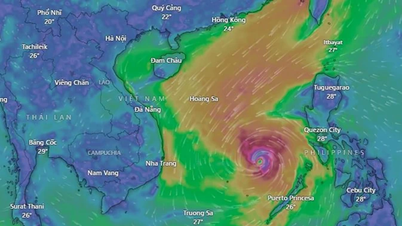

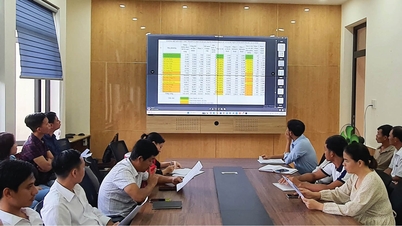

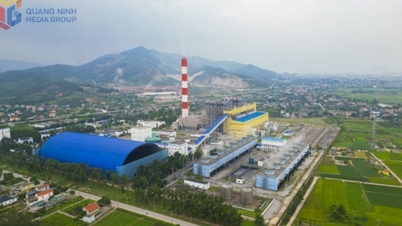



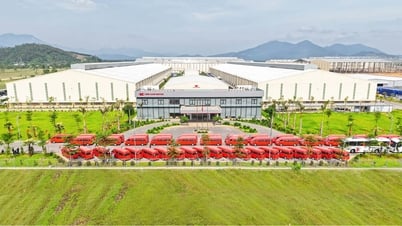
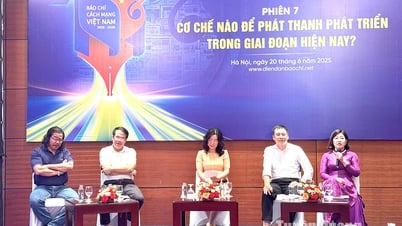

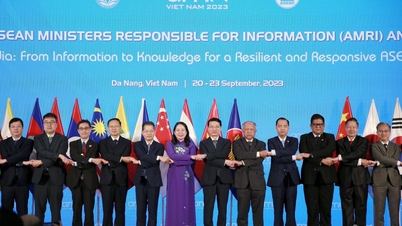

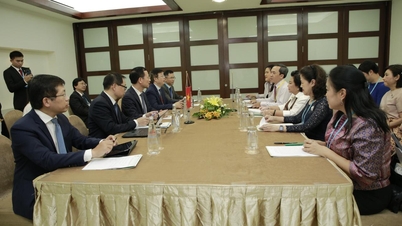

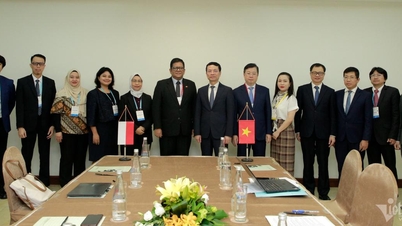
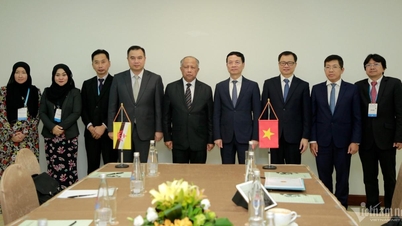
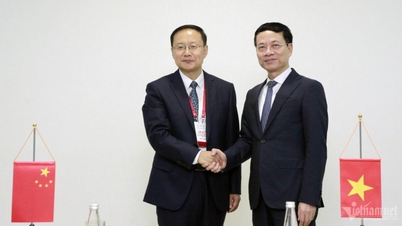




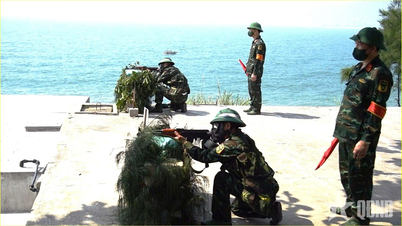

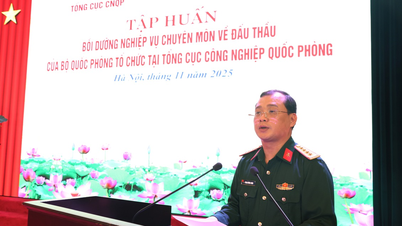
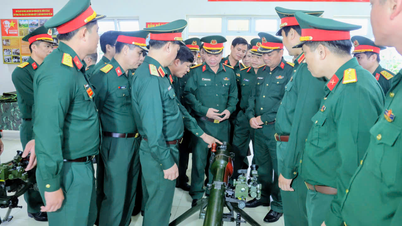

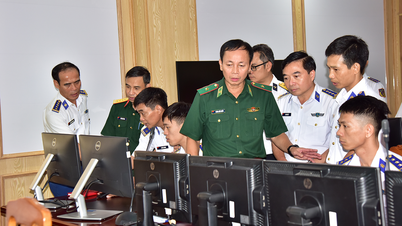







































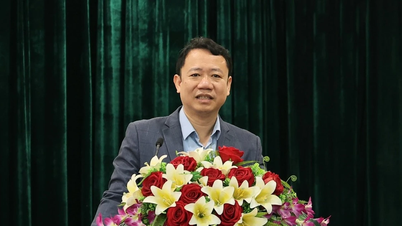
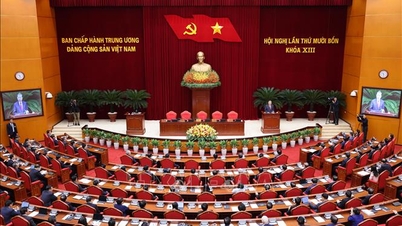

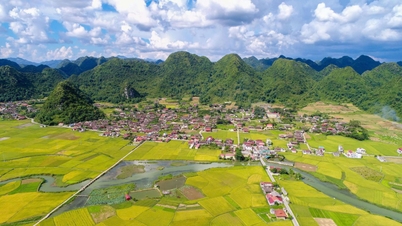
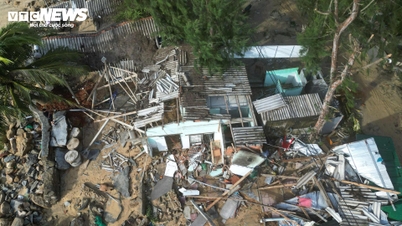


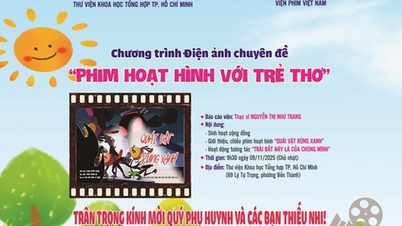

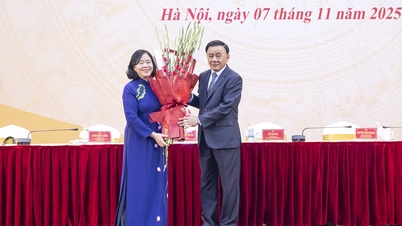


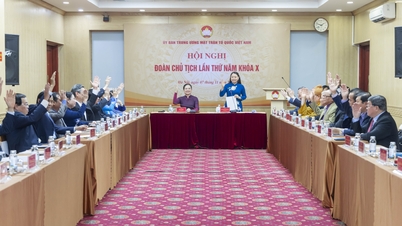

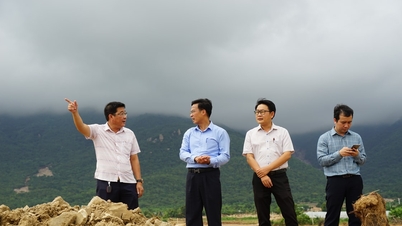


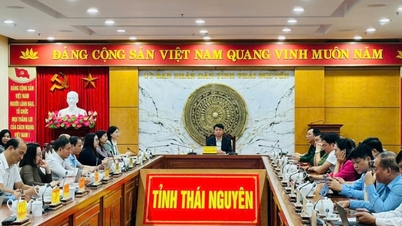


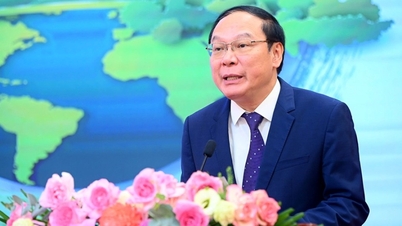
















Comment (0)